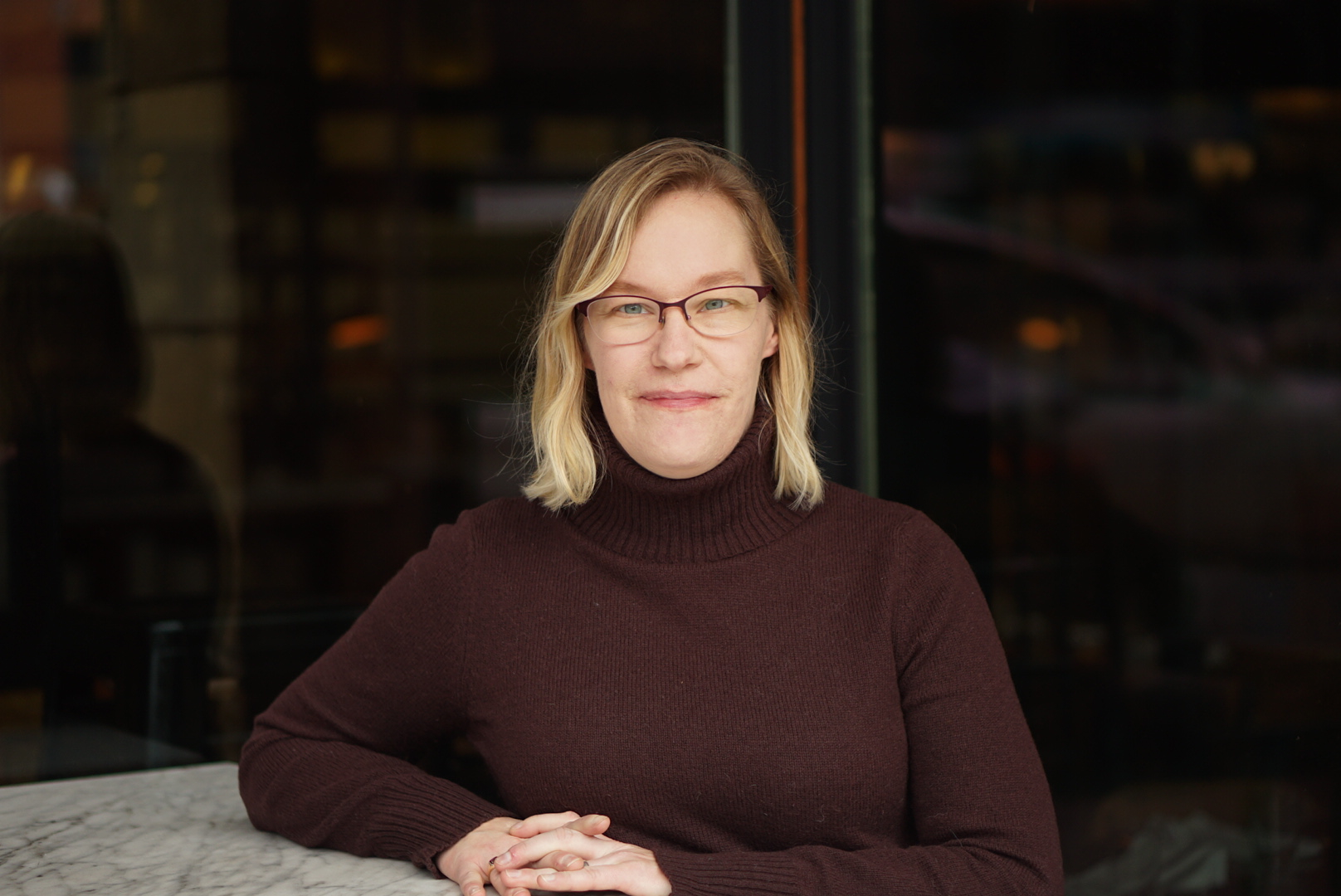Today we publish the third in a series of four posts about the diversity, equity, and inclusion (DEI)-focused sessions at the 43rd Society for Scholarly Publishing (SSP) Annual Meeting. Each includes a session summary from one of the panelists, as well as reflections and responses from members of our community. Reflections that cover more than one session have been broken up and included with the relevant post. Each of the four posts will cover the sessions sequentially:
- Fighting Racial Inequity in the Publishing Industry, with a summary by Cason Lynley (who introduced Dr. Williams) and reflections by Miranda Walker, Steven D. Smith, George Neame, and Dana Compton
- The Glass Ceiling You Don’t Know About Yet, with a summary by Simon Holt and reflections by Hannah Vinchur, Georgie Field, Nicola Poser, Damita Snow, and George Neame
- Accelerating DEI: Have the Data? Use the Data!, with a summary by Susan Spilka that includes results from the Vital Signs survey and poll conducted before and at the conference by TBI Communications, as well as reflections by Nicola Poser and Michelle Urberg
- Retrogressing Research and Limiting Diversity, with a summary by Steph Pollock, and reflections by Sneha K. Rhode, Susan J. Harris, Timothy McAdoo, and Jiayn Wang
To keep the conversation going on these important topics, we invite you to add your thoughts to the comment thread.

Accelerating DEI: Have the Data? Use the Data!
Session summary
Susan Spilka, Strategic Communications Consultant
This panel brought together representatives from four publishers (Emerald, Elsevier, Royal Society of Chemistry, and American Geophysical Union) to talk about their organizations’ research on gender, ethnicity, and other factors as it impacts the research enterprise and publishing workplaces. Their findings document what many of us know from experience about existing biases, barriers, and bullying. They recognize the unique power of the scholarly publishing industry in driving change within our organizations, and through the research pipeline, academia, and society at large.
The objective of the session was to share lessons learned from this work that attendees could bring back to their workplaces to inform best practices and accelerate progress. Transforming research and workplace cultures will require a long-term commitment from publishers and their employees alike, through a comprehensive internal and external approach. The collection of relevant data and its use to drive lasting change is a tremendous undertaking that needs to be broken up into manageable chunks. The path to success won’t necessarily be linear because, for example, achieving greater geographic diversity may cause backsliding in terms of gender diversity.
All of the panelists reported successfully using the data and evidence they collected to convince various stakeholder audiences (editorial boards, editors, authors, colleagues, funders, and institutions) to take on change. By working together, organizations don’t have to start from scratch and can make progress faster. All four panelists said their organizations participate in the Joint Commitment for Action on Inclusion and Diversity in Publishing, launched by the Royal Society for Chemistry, where they share DEI challenges, best practices, and solutions with about 40 similar organizations around the world. In a global community, it helps to have partners who understand the diverse perspectives, vocabularies, and circumstances surrounding DEI issues around the world. It’s also important to recognize that sharing data is not always easy to do — technological, legal, privacy, and cultural issues often trip us up. We cannot let our quest for perfection get in the way of moving ahead.
The panelists offered a wealth of useful information — it’s worth taking the time to listen to the entire session and read the lively chat discussion.
Assessing DEI Progress in Scholarly Publishing
At the time of the Annual Meeting, I was working with TBI Communications to conduct a Vital Signs study. It was launched in April 2020 to take the industry’s pulse on DEI and understand what changes had taken place since the 2018 Workplace Equity Survey (which it was adapted from and benchmarked against.) The survey was supplemented with a three-question poll conducted during our Accelerating DEI: Have the Data? Use the Data! session to gauge progress through the perceptions of the attendees, who are likely to be highly engaged in industry efforts.
The results: Organizations appear to be making progress in DEI efforts – over 83% of both the Vital Signs and the SSP session respondents said that their employer had stated its values relating to diversity and inclusion (up from 60% in the WE Survey). However, the percentage of respondents who perceived their workplaces to be aligned with those values hadn’t changed since 2018. In both 2018 and 2021, about six in 10 respondents (63%) reported strong or moderate alignment of the stated values and workplace experience. The Annual Meeting poll results showed a higher percentage selected strong alignment (46% versus 26%) compared to the Vital Signs respondents. These findings suggest that the work of some organizations may not be as widely evident to colleagues, beyond the more engaged group that attended the SSP session.
Over three quarters (77%) of Vital Signs respondents – especially women and those in the UK or Western Europe – and 90% of the SSP session segment reported that their employers have implemented positive changes over the past year, perhaps a vote of confidence in the new DEI committees and affinity groups that sprung up across the industry. These findings suggest some optimism, even though there is still much work to be done, especially regarding equal promotion opportunities based on ethnicity. The higher percentage of those polled at the SSP session may reflect the high level of engagement of that group in company efforts.
More than half of WE Survey respondents telecommute and/or work a flexible schedule. The pandemic’s pivot to remote work environments have whetted the appetite for wider adoption of such arrangements. Over 86% of Vital Signs respondents said they want their employer to continue to offer flexible options, on average 3-4 days per week. These results suggest there is an opportunity to widen recruitment to candidates who are based outside of expensive publishing centers, There was also a correlation on this issue between age and gender, with younger male respondents preferring to spend more time working from home than female respondents; whereas older male respondents would like to spend more time in the office than older female respondents. The gender variance may also be an indication of the uneven burden on women for family care and the need for more support from companies.
A more complete report on the results is available here.
Community Reflections
Nicola Poser, Director, Marketing & Sales, American Mathematical Society
From “Accelerating DEI: Have the Data? Use the Data!” – so often our editors, authors, and reviewers are affiliated with the ‘same’ schools – are we reflecting the diversity of the research community in terms of institutional affiliation, in addition to gender, national origin, and race? Do rigid job descriptions perpetuate a circle of hiring people with similar profiles, who look like we expect “publishing people” to look, rather than looking at adjacent experience and skills and focusing on what a candidate can do and contribute?
Michelle Urberg, Independent Consultant and Project Implementation Manager, MU Consulting and EBSCO Information Services
I think it is great that society publishers and societies are taking a serious data-based look at diversity and inclusion. Numbers can speak volumes in a less charged way than an orator championing the cause of rebalancing gender imbalances in a society. Numbers clearly assist publishers with encouraging their society partners to change their behavior.
I definitely appreciated the call to action by Emma Tregenza: data is a start, but work needs to be done to actively chip away at entrenched habits that prevent us from moving the needle on gender imbalance. One thing I have learned from consulting in and around the tech industry is that minimum viable products should be launched, used, and developed to better suit end user needs. Small, achievable benchmarks should be built into these initiatives in conjunction with data-gathering.
It seemed like most of the perspectives came from STEM research and publishing. Where are the humanities or the social sciences? [Editor’s note: Emerald Publishing is a humanities and social sciences publisher.] How do they approach gathering data and measuring gender imbalances? What would that conversation look like?



